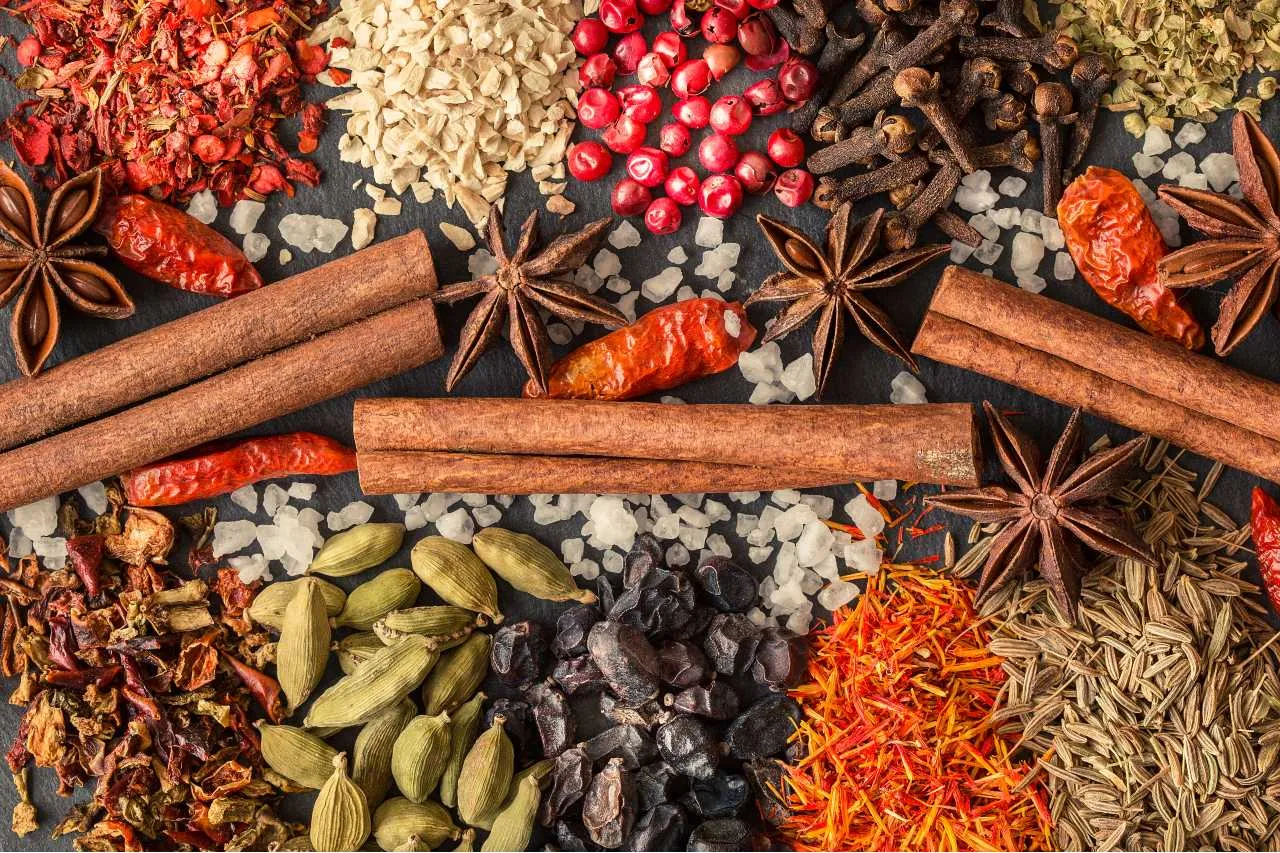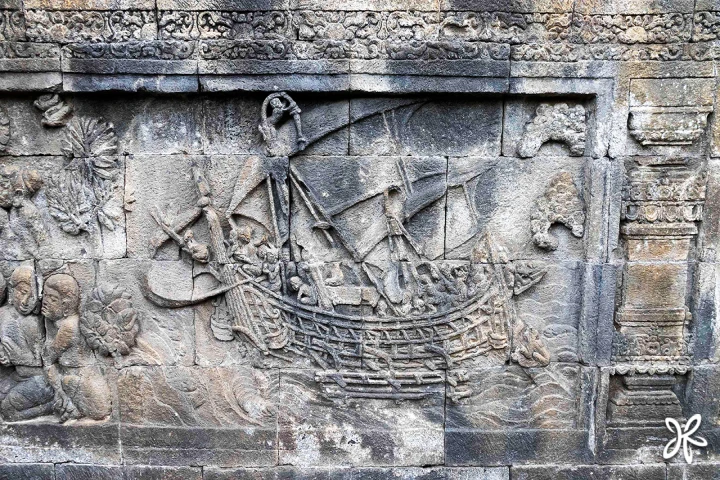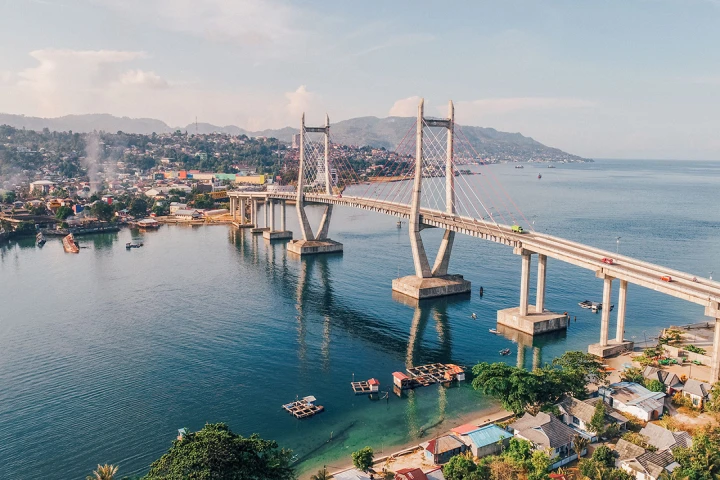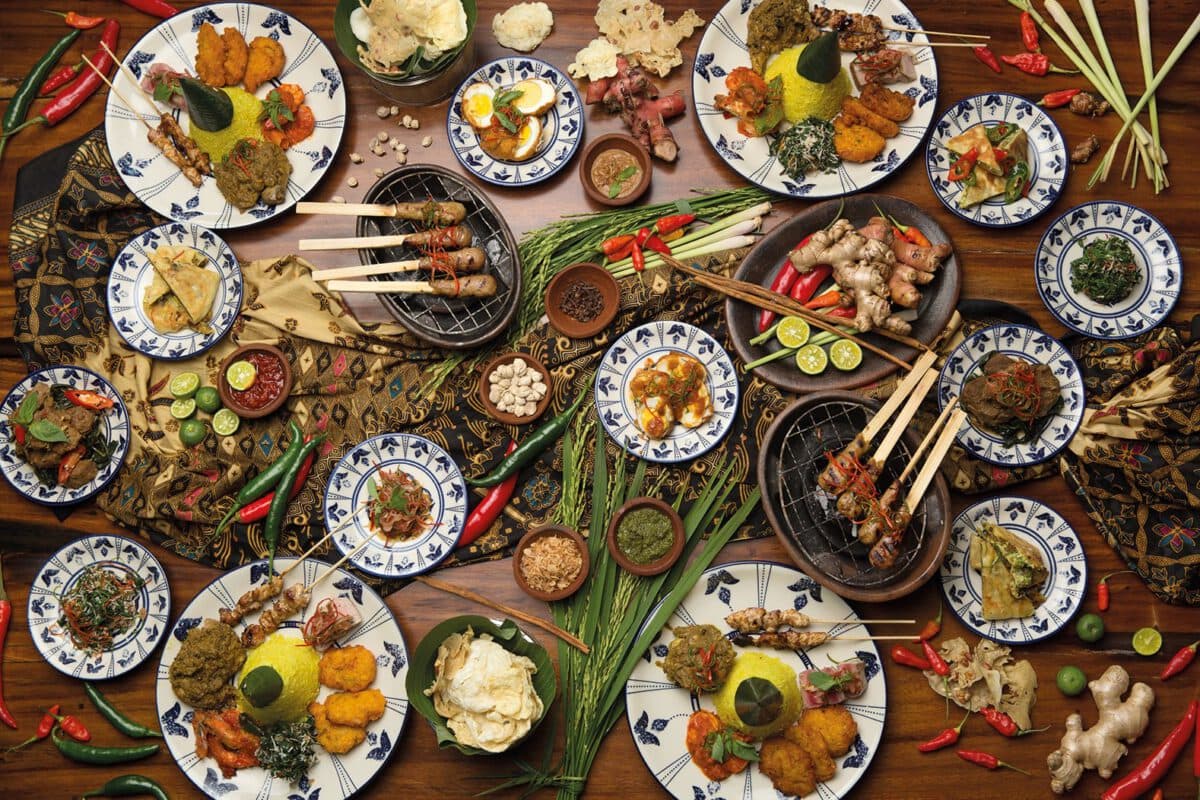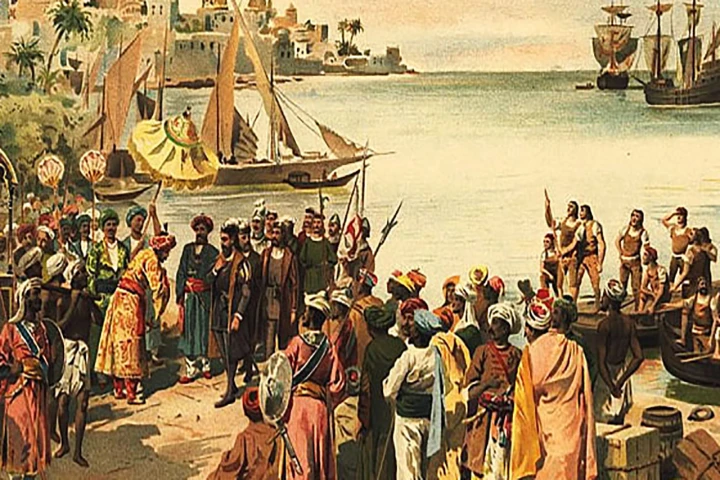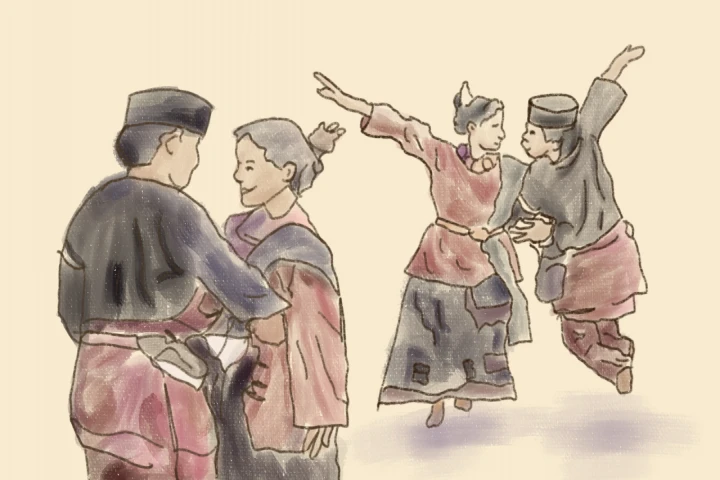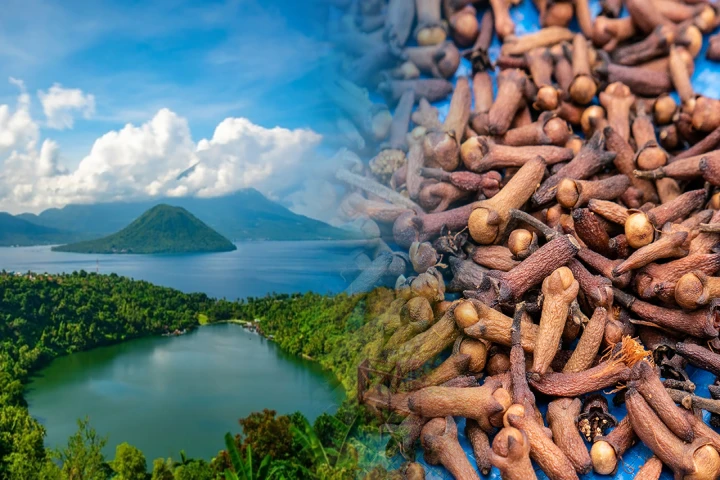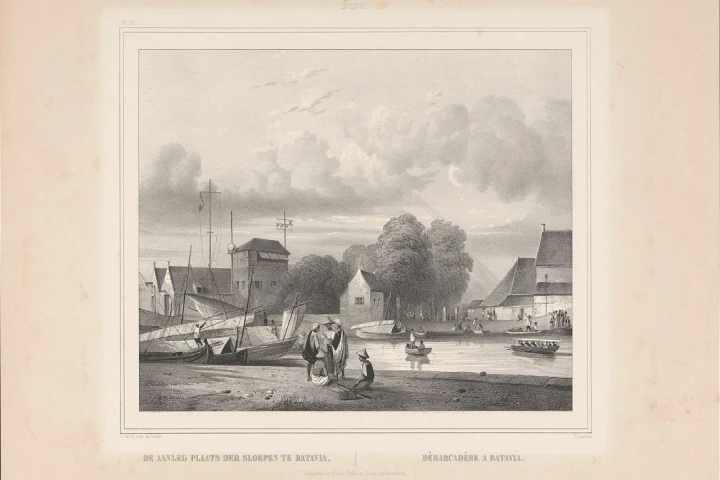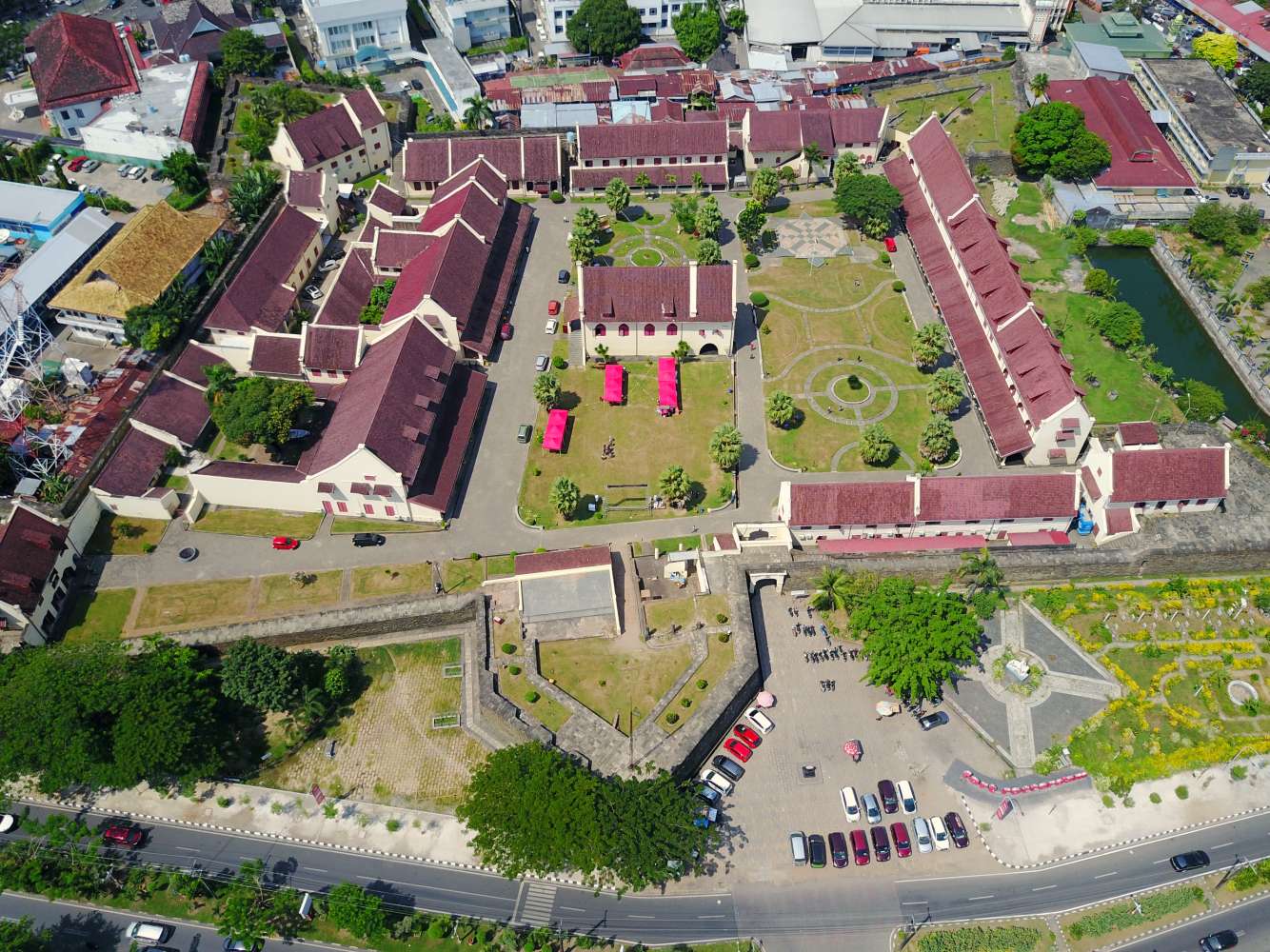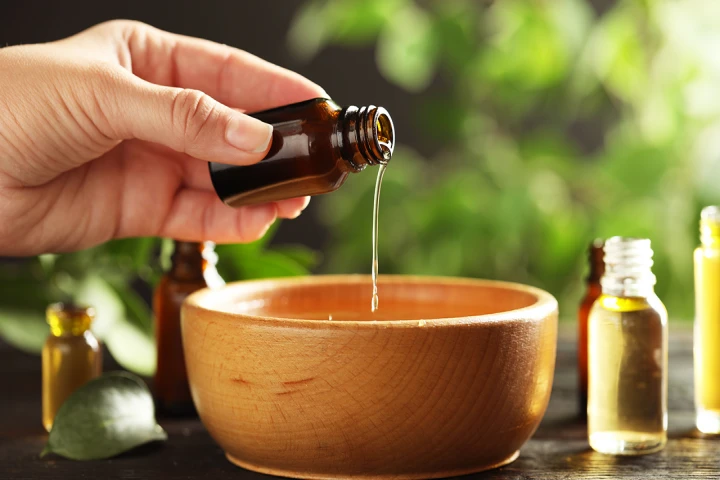
Centuries ago, Byzantium, which later changed its name to Constantinople, was a city as the world trade transit hub. Constantinople was a mesmerizing city; it was fertile and geographically had a very strategic location, so it became the biggest and most prosperous city in Europe. The city was established by the Roman Empire, located on the border of Europe and Asia, strategic in terms of the sea in between the Mediterranean and the Black Sea and land traversed by the Silk Road, where it was the crossroad center of the world trade route. Traders from various countries came and conducted transactions from multiple commodities. The spice trade was one of the old and most profitable businesses of its time. Spices had been known in Europe around 70 BC and were used as medicine and seasoning.
Maluku–that wasn't known in the past–became the primary source of world spices from the Strait of Malacca, the Arab and Gujarati traders brought to India and China through the Silk Road. Spices were then loaded by ships to the port in Venesia, and they were brought overland to the Mediterranean, then exported to the Middle East and countries around the Mediterranean until they eventually became the spice trade route spread across Europe. At that time, spice, including nutmeg and clove, were luxurious goods that were often exchanged with fabric from India or ceramics from China. The Europeans fancied spices. The cold climate of Europe made spices often consumed to warm the body and as medicine, seasoning, and perfume. Furthermore, spices from the East Country, namely Nusantara, were believed to become the natural inhaler to heal the great plague that caused terrific death in Europe.
Until today, human life is not separated from natural selection by the plagues that ever happened. The Covid-19 crisis that is happening today is not the first plague to happen. Before this, other plagues have ever hit our earth several times; one of them was the bubonic plague. It was caused by Yersinia Pestis bacteria brought by rat fleas in 542 in Constantinople–one of the places where several food commodities were for sale internationally. It allegedly became a reason why the spread of bubonic plague happened. The food commodity imported by Constantinople brought the rats with fleas that sneaked to different trade ships and hid among the various shipload. The rats who brought the disease went on the trade ships, sneaking between foodstuff sacks. The disease could infect humans through the rat fleas' bite or the infected rat's bite. Rats with the disease generally lived for 10-14 days and then died, but the fleas on their body would survive. The mass death of the rats made the swarm of fleas lose their hosts, so they nested on human bodies and brought disease.
At the beginning of its appearance, the bubonic plague was known as the Plague of Justinian, as the ruling Roman Emperor’s name during the pandemic. The disease then spread, crossing North Africa, Asia, the Middle East, and Europe. People didn't know how to fight the plague but to avoid those who were infected so they could survive or have immunity through adaptation. The bubonic plague didn't just disappear. Eight hundred years later, the plague came back to Europe in 1347. In 4 years, the plague killed almost two-thirds of the European population, and 200 million people in the world were estimated to be killed. The plague was known as Black Death, for the early symptom of the sufferers was the blackening of the skin due to dead tissue.
Black Death Plague in Europe (source: literaryocean.com)
At that time, the disease treatment was done by carrying forced isolation for the ship's crews that had just arrived at the port. The crews were detained in the ships for 30 days, which was known by the term trentino until they eventually declared not sick. As time went by, the isolation duration of the crews was added to 40 days of quarantino, which was the original word for "quarantine" that the world knows today. Besides, the Europeans believed that using nutmeg or spice, which were put into a small pouch and draped around the neck wherever they went can prevent them from the plague. Although it was considered superstition at first due to the limited knowledge, people believed that the scent of nutmeg they inhaled became medicine for the disease. It is because nutmeg or most spices were antibacterial, fungicide, and insecticide due to the chemical content, especially the isoeugenol component that was the natural insecticide proven to align with the development of knowledge. Many benefits of spices from Nusantara made Europeans fancy the spices more, and further, the nutmeg and clove commodities became the diva.
Until in 1453, the fall of Constantinople brought a great change to the world. The conquest of Constantinople by the Ottoman Turks Islamic Empire, under the command of Muhammad Al-Fatih, impacted the Asian and European trade routes. The trade activities between Asia and Europe were cut off due to the blockade and trade monopoly from the Ottoman Turks Sultanate, so the spices from Asia could not enter Europe. The Portuguese, Spanish, British, and Dutch's love towards spices from the East country and the world trade route clocking made the European involved in the competition to find spice producers that the Arab and Gujarati traders kept secret. At that time, nutmeg and clove only grew in a specific climate in the Maluku Islands, as the world's only best nutmeg and clove producer. The nutmeg import from Nusantara made the price very expensive, for a long journey across the ocean for months full of risks was needed.
Compared to the price at that time, the spice price could be multiple times the gold price, making them so precious. It triggered the European traders to dominate the spice trade and took a big profit by exploring the ocean. The ocean exploration made the Europeans find many new things that eventually influenced the advancement of knowledge and technology, including the rapid development of marine navigation for a voyage to explore the world. With their advanced naval force and shipping, the Europeans, such as the Portuguese and Spanish, explored the East and West routes to arrive in Asia, followed by other Europeans, like British, Dutch, and French.
The Portuguese were the first European to set foot on the Spice Islands Maluku. In 1506, a Portuguese named Lodewijk de Bartomo came to Nusantara for the first time and reported the situation of Maluku to his birthland. Several years later, the Portuguese officially arrived in Maluku through the north route of the Strait of Malacca, which was the port of call for the entry and exit of the trades in Southeast Asia and then to Banda Island. When the Portuguese were in the Maluku Islands, the condition was not very good. The Maluku Sultanate, Ternate and Tidore, were having a fight and fierce competition to dominate the Maluku spice trade hub by forming Uli Lima (Ternate) and Uli Siwa (Tidore) trade syndicates. In a relatively short time, the Portuguese were followed by the Spanish, who was their competitor to find the Spice Islands. When they arrived in Maluku, the Spanish could easily influence the locals, but they found it hard to face the Portuguese to get authority in fully handling the Maluku Islands. Both of them competed and tried to get support and legitimacy from local kingdoms until the Portuguese eventually joined with Ternate, and the Spanish joined with Tidore, which caused Maluku to disintegrate.
It was easier for the Europeans to control Nusantara due to many conflicts between Nusantara rulers. The Netherlands was the first country to reach the Banda Sea in 1599. When the Dutch finally found Banda Island, they tried to protect spices by doing trade monopoly and forming VOC in 1602, until eventually, VOC managed to dominate nutmeg plantation and luxurious Nusantara spices. There were three powers upon Maluku Island; the Ternate Kingdom dominated North Maluku, VOC dominated Central Ternate, Spanish dominated South and West Ternate. In 1663, the Spanish perforce left Maluku, for they had to protect the colonized country, Manila, from the Chinese pirates' attack. Practically caused the South and West Ternate to have no rulers, and the Dutch took advantage of the situation to strengthen their existence in Maluku. VOC conducted trade monopoly activities more intensely. Furthermore, the leave of the Spanish made the entire spice trade in Maluku be in the VOC's total control. Until there was an agreement about "VOC monopoly rights" upon the spice trade in the entire Maluku.
However, the British's success in dominating one of the Banda islands, named Run Island, obstructed the VOC trade monopoly. In 1797, the British arrived in Banda Island and declared British colonialism. The British could only keep Run island for four years until finally, the Dutch dominated it. However, it did not stop there. The British took revenge action by seizing Manhattan in New York that the Dutch called New Amsterdam since the French occupied the Netherlands. Eventually, both of the countries made an agreement through the Treaty of Breda, in which it was decided that Run Island, which before was dominated by the British but was then dominated by the Dutch, belonged to the Dutch. Meanwhile, Manhattan Island in New York was the Dutch colony but was then occupied by the British, was officially given to the British. In the course of time, both islands have different fates today.
Some nations fought over the glorious Run Island in Banda, for it kept nutmeg like a treasure. But now, it is a deserted and forgotten island due to the trade setback and nutmeg's price fall. On the other hand, Manhattan Island, once a mere fur trading post, today transformed to become the most developed country globally and even one of the global economic centers located in New York City.
Banda Island in Maluku is only one of many Nusantara spice routes. Spice routes are part of the cultural and historical treasure of the nation, in which the special values in it need to be dug and preserved. The values bequeathed by cultural assimilation become an irreplaceable wealth and must be preserved, for it becomes one of the national identities. Seeing the setback of Indonesian spices and the spice routes that today began to be forgotten, although many nations targeted it, is very concerning. Moreover, today we are faced with the challenge and progress of time that scrapes the history and local culture existence, so we need an effort to strengthen national identity. And then, how to make the world once again see the cultural heritage, especially the spice route in Maluku?
In the progress of time, people’s life patterns also changed. The holistic lifestyle trend mushrooms in the world, people are pushed to apply a healthy lifestyle due to the rise of the wellness movement. Besides maintaining physical health and choosing herbal medicine, keeping the mind positive in the digital technology era is as vital for mental health. The Millenials begin to apply practices of meditation, self-healing, and mindfulness with the help of essential oil, and it even becomes the trend that proliferates in America.
Essential oil from spices (source: aromaazinternational.com)
Essential oil is a volatile oil with terpene as the main component. The oil is produced from original concentrated liquid extracted from plants, so the scent is powerful. Essential oil, also known as aromatherapy oil, has many benefits for physical health. The characteristic of this oil is not soluble in water, fragrant with the fragrance level that lasts from plant source and composition that is contained in it (various, from delicate/soft to strong). It is produced from various parts of plant extract, such as oil that is produced from roots (vetiver, orange jessamine), leaves (patchouli, clove, eucalyptus, lemongrass, lemon basil), seeds (nutmeg, pepper, anise, cardamom, castor), fruits (fennel, cumin, anise, coriander), flowers (clove, ylang-ylang, jasmine, rose), tree bark (cinnamon, acacia, star anise), wood (sandalwood, agarwood), rhizome (ginger, turmeric, galangal, curcuma), and other plants.
Looking back when the bubonic plague in Europe happened and was believed to heal by smelling nutmeg, it is a history that proves the content of essential oil as aromatherapy can't be doubted. Aromatherapy is the use of essential oil by inhalation, applied directly, or internal use to maintain and improve health, be it physical, psychological, or even spiritual. It is linked to the current state of the pandemic; some Indonesians use a lot of herbal medicine, like spices, that is believed to be able to prevent Covid-19.
For example, in Maluku, as green gold has abundant natural resources in agriculture, especially spice commodity, specifically nutmeg and clove, the local community still keeps the baukup tradition or bertangas (a bath tradition or inhaling hot steam from spice potion stew) that is believed can be medicine for many diseases, including a means to prevent Covid-19.
Baukup Tradition of Maluku (source: Beritabeta.com)
The Baukup tradition using spices that have high efficacy like nutmeg, galangal, eucalyptus, cinnamon, ginger, clove, and other spices have been believed for a long time by the community to be able to heal disease, give relaxation, decrease headache, secrete toxin through sweat, and the increase of the immune system. This practice is a tradition as a legacy from the ancestral history and culture that continues. People in the past were generally limited to health access, so they only depended on knowledge based on local hereditary wisdom. The community's belief that the baukup tradition can heal various diseases doesn't seem to be contradicted; with scientific progress, it can, of course, help prove the benefits scientifically.
Seeing from the spices that are used, it is strongly related to the essential oil component inside it. The essential oil contains volatile constituent components, like terpene, ketone, phenol, hydrocarbon, alcohol, ester, organic acids, and others. The chemical component in essential oil has benefits as medicine, used a lot for the therapeutic effect that gives not only physiological effect toward a respiratory system, muscles, joints, hormones, and immune but also psychological effect to calm and decrease anxiety. Baukup tradition from Maluku with traditional potion probably is not known by the modern community who lives in big cities, but the local wisdom becomes an inspiration to make an alternative usage of essential oil using diffuser (a tool to change oil into fume) as the "modern potion" that begins to be a world trend today for health and be used as an air freshener.
It becomes an opportunity that Nusantara spice commodity can still exist and push international trade development and make Nusantara Spice Routes be recognized and known once again by the world, especially Ternate in Maluku, which is the zero point of the world Spice Routes.
According to the Indonesian Essential Oil Council, there are almost 100 types of essential plants and 400-500 species of spice plants in Indonesia. It pictures how fortunate we are to have wonderful natural wealth. Of 150 types of essential oil traded in the international market, 40 of them are produced in Indonesia. It's not surprising that since a long time ago, our nation has become one of the world's needs centers, especially spices that the Europeans were interested in; many of them only grew in Indonesia. The biodiversity spread in Indonesia can bring us as the world market leader for essential oil commodities, especially nutmeg, clove, patchouli, and eucalyptus oil, where only Indonesia is the leading producer.
Tomé Pires, a Portuguese explorer, revealed in his travel log that "The Malay merchants say that God made Timor for sandalwood and Banda for [nutmeg and] mace and Maluku for cloves, and that this merchandise is not known anywhere in the world except in these places; and I asked and enquired very diligently whether they had this merchandise anywhere else and everyone said not." It shows that no other nations globally have mega biodiversity like Indonesia. That's why Indonesia's biodiversity is a long-term asset that needs to be studied, researched, and utilized effectively in accordance with the progress of time for the nation's well-being and strengthen character and national cultural resilience. Both in the past and present, spices have become the primary commodity that is essential, for they can influence the social, cultural, political, and economic conditions globally.
Until today, Indonesia is still one of the biggest essential oil-supply countries in the world. Indonesia has become the essential oil supplier for more than 70% of the world's needs, where a lot of them are exported to America, Europe, Africa, and Oceania.
The essential oil export value is one of the primary sources of foreign exchange for Indonesia, where the Compound Annual Growth Rate (CAGF) for annual export of Indonesian essential oil in the last five years shows the trend that tends to increase due to the essential oil high selling value. Until April 2021, the value reached 84 million USD with an annual growth of 15,5%. The increase was especially driven by the essential oil price that skyrocketed in the Covid-19 pandemic.
One of the essential oil commodities that are most popular is nutmeg oil and clove oil, which have long been known to have the best quality in the world. Indonesia even becomes the supplier for more than 90% of the nutmeg oil needs globally, in which from the total of nutmeg oil in Indonesia, 50% of it is produced from Maluku. It illustrates that Indonesia is blessed with a high-valued spice plant in the world market. The abundant sources of Indonesian spices driven by the selling price and foreign market demand of the essential oil that is high is a promising exporter opportunity. The economic potential of essential oil is certain and can positively impact the economy. With Indonesia's abundant plant resources, essential oil production in the future not only focus on nutmeg, clove, patchouli, and eucalyptus. To become an essential oil, the production profit from other spice commodities, like anise, cardamom, star anise, citronella, and other plants, is wide open and needs to be paid attention to so that it can be a high-level product.
Generally, the essential oil artisans or Small Micro Medium Enterprises still use the traditional method with simple equipment in the essential oil refining process. So, the essential oil quality tends not to be up to national/international standards. The quality imbalance is a decisive factor for price stability and will impact the less profitable essential oil processing business. The problem of the essential oil industry still revolves around the process of planting, technique and production continuity, product quality, and the undeveloped downstream industry of essential oil with more added value. All this time, the Indonesian essential oil quality improvement is made in the export destination country that will commonly be processed as derivative oil or be used as industrial raw material, like flavoring industry, fragrance, aroma enhancer, perfume, household product (raw material of soap, detergent), pharmacy, and oleochemistry. Therefore, an effort to overcome the problem is needed, such as fostered farmers assistance on an excellent plant cultivation technique, post-harvest, traditional distillation assistance, production process supported by technology with fractionation technology transfer (compounds separation) to increase purity, and the development of the essential oil derivative products that have a higher selling price. An appropriate process and an industrial chain that is well integrated from the upstream to the downstream will produce essential oil with high gain and quality. Therefore, it can increase the farmers' income and well-being and Indonesian essential oil distillation.
The essential oil development from Nusantara spices through the increst of productivity and the quality of other spice oil become a big opportunity that we cannot miss. The revitalization of other spice resources to become essential oil can help increase the use of spices, empower farmers, improve human resources' skills in the spice field, and further revive the existence of Nusantara spice routes so that they can be, once again, known by the world.
Bibliography
Adhityatama, Shinatria. 2016. Kapal-kapal VOC Yang Tidak Pernah Tiba di Batavia 1602-1799. Griffith University.
Amal, M. Adnan. 2006. Kepulauan Rempah-Rempah: Perjalanan Sejarah Maluku Utara 1250-1950. Maluku. Gora Pustaka Indonesia.
Anto. 2020. Rempah-Rempah dan Minyak Atsiri. Klaten, Jawa Tengah. Penerbit Lakeisha. Aromaazinternational.com. 2020. “Ultimate List Of India’s Top Spice Oils With Their Major Benefits!” accessed through https://aromaazinternational.com/blog/ultimate-list-of-indias-top-spice-oils-with-their-major-benefits/ on 04 September 2021.
Athifah. 2020. “Mengenal Rempah Indonesia dalam Bentuk Essential Oil” accessed through https://www.brilio.net/creator/mengenal-rempah-indonesia-dalam-bentuk-essential-oil-d653f9.html on 12 August 2021.
Beritabeta.com. 2020 “Tradisi ‘Baukup’ Digelar Jadi Metode Pencegahan COVID-19 Di Kabupaten SBT” accesed through https://beritabeta.com/tradisi-baukup-digelar-jadi-metode-pencegahan-covid-19-di-kabupaten-sbt on 04 September 2021.
Bustaman, Sjahrul. 2008. Prospek Pengembangan Minyak Pala Banda Sebagai Komoditas Ekspor Maluku. Balai Besar Pengkajian dan Pengembangan Teknologi Pertanian. Bogor. Jurnal Litbang Pertanian, 27(3).
Fitri, Noor dan Mohammad Dadang. 2015. “Pengembangan Model Techno-Industrial Cluster Minyak Atsiri”. Jurnal Inovasi dan Kewirausahaan, 4, 181-190.
Harling, Danielle. 2021. “Meet a Wellness Trend That Will Make Your Home Smell Incredible”. accessed through https://www.mydomaine.com/what-is-aromatherapy-5089292 on 27 August 2021.
Ishak, Natasha. 2020. “The Black Death Was The Worst Pandemic In Human History, So How Did It Finally End?” accessed through https://allthatsinteresting.com/how-did-the-black-plague-end on 04 September 2021.
Janti, Nur. 2019. “Kala Black Death Hampir Memusnahkan Eropa”. Accessed through https://historia.id/sains/articles/kala-black-death-hampir-memusnahkan-eropa-P4neV/page/1 on 13 August 2021.
Khairunnisa, Syifa Nuri. 2020. "Pala, Rempah yang Dipercaya Bisa Menangkal Pandemi Black Death pada Abad Ke-14". accessed through: https://travel.kompas.com/read/2020/04/20/080700627/pala-rempah-yang-dipercaya-bisa-menangkal-pandemi-black-death-pada-abad-ke-14?page=all on 13 August 2021.
Laucereno, S. Febrina. 2021. “Top! Minyak Atsiri Asal RI Mendunia ke AS Sampai India” accessed through https://finance.detik.com/berita-ekonomi-bisnis/d-5672795/top-minyak-atsiri-asal-ri-mendunia-ke-as-sampai-india on 01 September 2021.
Maity, Supriya. 2021. “A short note on Black death and its effect on England”. accessed through https://literaryocean.com/a-short-note-on-black-death-and-its-effect-on-england/ on 04 September 2021.
Mcgroarty, Beth. 2019. “Global Wellness Trends: Meditation Goes Plural”. accessed through https://www.globalwellnesssummit.com/2019-global-wellness-trends/meditation-goes-plural/ on 27 August 2021.
Mellissa, Venessa. 2019. “Konstantinopel dan Fakta Menarik di Balik Kota Ini”. accessed through https://www.futuready.com/artikel/travel/konstantinopel/ on 16 August 2021.
Pratt, Eliza. 2019. “Essential Oils: Get Clarity of Mind to Reap the Benefits of Meditation”. accessed through https://www.powermums.com.au/essential-oils-get-clarity-mind-reap-benefits-meditation/ on 10 September 2021.
Ratriani, Virdita. 2020. “Mengenal Pulau Run di Maluku yang Ditukar dengan Manhattan di New York” accessed through: https://lifestyle.kontan.co.id/news/mengenal-pulau-run-di-maluku-yang-ditukar-dengan-manhattan-di-new-york?page=all on 12 August 2021.
Rearick, Lauren. 2017. “Aromatherapy Is A Perennial Wellness Trend“. Accessed through https://www.huffpost.com/entry/does-aromatherapy-work_n_5a2567f9e4b0a02abe929eb3 on 01 September 2021.
Rusli, M. Syahbana, dkk. 2021. “Essential Oil for Millennials”. Virtual Talkshow Dewan Atsiri Indonesia; IPB; Departemen Teknologi Industri Pertanian; dan Asosiasi Agroindustri Indonesia. Diakses melalui zoom meeting http://ipb.link/webinar-tin-series. Sainte-anastasie.org. 2021. “Aromachologi atau psikologi aroma”. accessed through https://id.sainte-anastasie.org/articles/cultura/aromacologa-o-psicologa-de-los-aromas.html on 28 September 2021.
Utama, Swastika. 2021. “Okupasi 2372: Minyak Esensial”. accessed through https://indonesiare.co.id/id/article/okupasi-2372-minyak-esensial on 14 August 2021.
Widyaningrum, Gita Laras. 2020. “Karantina Hingga Vaksin, Inilah Akhir 5 Wabah Terpara di Dunia” accessed through https://nationalgeographic.grid.id/read/132075377/karantina-hingga-vaksin-inilah-akhir-dari-5-wabah-terparah-di-dunia?page=all on 13 August 2021.
_______
The article is the featured winner’s work of the Bumi Rempah Nusantara untuk Dunia writing competition 2021. The article has gone through an editing process for publication on this page.
_______
Silfi Gania Fauziah is a master’s student of Chemical Engineering at Bandung Institute of Technology
_______
Editor: Doni Ahmadi
Translator: Dhiani P.
Image: New Africa/Shutterstock
